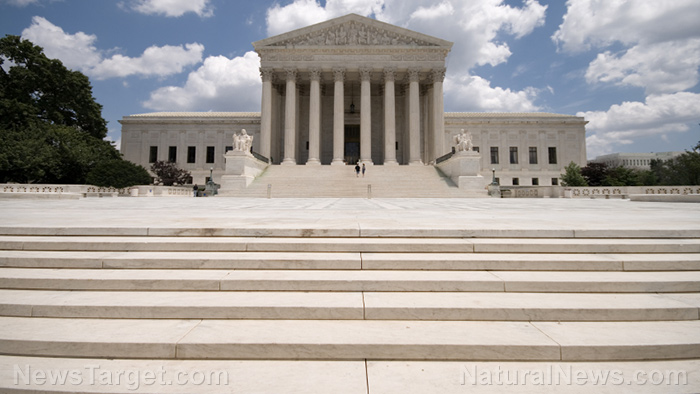“Statecraft as Soulcraft”: George F. Will’s call for a moral renaissance in governance
04/24/2025 / By Belle Carter

- George F. Will challenges the conventional view that government should primarily focus on economic policy and self-interest. He argues that the government has a profound responsibility to shape the moral and civic character of its citizens, a concept he encapsulates in the term “statecraft as soulcraft.”
- Will criticizes the modern political order for prioritizing self-interest and tolerance over excellence and moral development. He attributes this to a “radical retrenchment” and a “lowering of expectations,” which he believes has led to a fragmented and individualistic society.
- Will contends that a free-market economy alone is insufficient for a just and cohesive society. He advocates for a broader understanding of governance that emphasizes justice, social cohesion and national strength, rather than solely focusing on economic growth.
- As a visionary, Will calls for a “conservative counterattack” that goes beyond defending industrialism and individualist economics. He envisions a conservatism that cultivates and conserves certain values, promoting a society that values tradition, excellence and the common good.
- Will emphasizes the crucial role of education in shaping the moral character of the nation. He believes that education is a vital tool for nurturing the “inner life” of citizens and sustaining the societal fabric, a concept often overlooked in contemporary political discourse.
In a political climate often dominated by debates over economic policy and partisan divides, George F. Will’s “Statecraft as Soulcraft: What Government Does” emerges as a profound and provocative exploration of the deeper purpose of government. Since its release, the book has sparked discussions among scholars, policymakers and the public, challenging readers to reconsider the fundamental role of government in shaping the moral and civic character of its citizens.
A renowned political commentator and columnist, Will delves into the heart of America’s national identity and its future trajectory. Published at a time when the nation was grappling with issues of social cohesion and moral direction, his work is both a critique and a call to action. He questions the prevailing belief that self-interest is the sole driving force behind human action, a notion he traces back to the Founding Fathers. This idea, he argues, has led to a society increasingly focused on personal gain at the expense of the collective good, resulting in a nation that is “in very real danger.”
Will’s central thesis is that the government has a crucial role in fostering the moral development of its citizens, a concept he encapsulates in the term “statecraft as soulcraft.” He criticizes the notion that a free-market economy alone can ensure a just and cohesive society. Instead, he advocates for a broader understanding of governance that prioritizes justice, social cohesion and national strength.
“A free-market economy is not, in itself, a sufficient goal for a properly conservative government,” Will asserts.
The book is a journey through the evolution of political thought, from the ancients to modern times. Will argues that the modern political order, with its emphasis on self-interest and tolerance, has led to a “radical retrenchment” and a “lowering of expectations.” He laments the abandonment of the pursuit of excellence in favor of a more pragmatic, utilitarian approach to governance.
Will’s critique of modern liberalism is particularly pointed. He contends that liberalism, which began as a doctrine for liberating economic egoism, has morphed into a general doctrine of “liberation,” leading to an abuse of the First Amendment and a celebration of self-expression over objective achievement. This, he believes, has resulted in a society that is increasingly fragmented and individualistic, with a weakened sense of moral community.
However, Will is not merely a critic; he is a visionary who calls for a “conservative counterattack” in law, culture and beyond. He envisions a conservatism that is not solely focused on defending industrialism and individualist “free-market” economics but one that cultivates and conserves certain values.
“Conservatism should be about the cultivation and conservation of certain values,” he argues.
The concept of “statecraft as soulcraft” is further elucidated through Will’s exploration of the role of education in shaping the moral character of the nation. He cites the Supreme Court’s emphasis on the “fundamental role” of education in maintaining societal fabric and sustaining political and cultural heritage. Education, he believes, is a crucial tool for nurturing the “inner life” of citizens, a concept often overlooked in contemporary political discourse.
Will draws on the wisdom of philosophers like John Stuart Mill, who distinguished between “governing” and “controlling.” Mill posited that a small cadre governs while the people control the governors. Will takes this a step further, arguing that the government should act as both a tutor and a servant to its citizens, as citizenship is as much a state of mind as it is a legal status.
In the end, Will’s message is clear: We need a politics that nurtures the spiritual in a nation predisposed toward preoccupation with the material. He believes that “statecraft as soulcraft” is not just a lofty ideal but a practical necessity. It is about using the power of government to encourage temperance, foresight and civic spirit, and to strengthen the “little platoons” that are the molecular units of society.
For Will, the task at hand is to rethink our approach to governance and recognize that government has a role to play in shaping the moral character of its citizens. This means embracing a conservatism that is both principled and pragmatic, one that values tradition and excellence while also recognizing the importance of social cohesion and the common good.
Learn more about “Statecraft as Soulcraft” by watching the video below.
This video is from the BrightLearn channel on Brighteon.com.
Sources include:
Submit a correction >>
Tagged Under:
awakening, big government, Collapse, conservatism, conservative government, culture wars, economy, free market, George F. Will, John Stuart Mill, left cult, liberalism, national strength, politics, progress, rational, Resist, revolt, Statecraft as Soulcraft, truth
This article may contain statements that reflect the opinion of the author
RECENT NEWS & ARTICLES
COPYRIGHT © 2017 PENSIONS NEWS




















